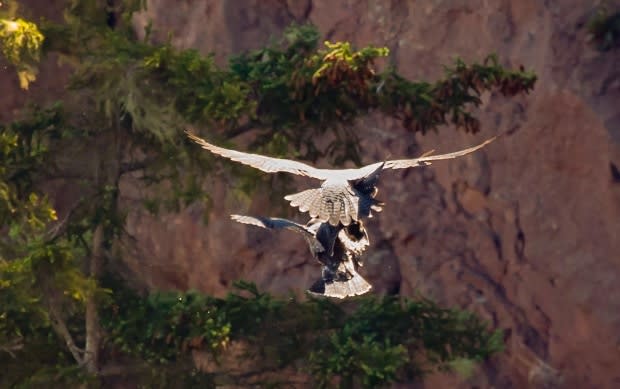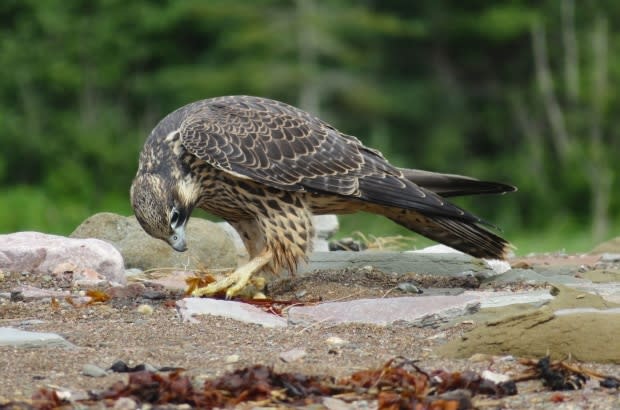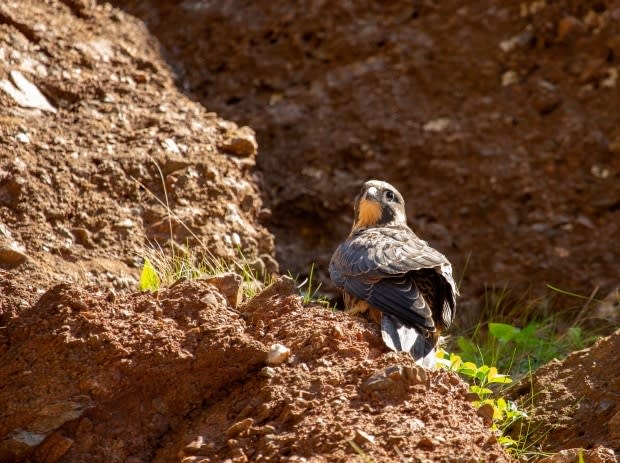Peregrine falcons entertaining visitors at Hopewell Rocks

Visitors to the Hopewell Rocks are getting an up-close look at a family of peregrine falcons with three young ones that are learning to hunt and survive on their own.
"They are spending most of their time in the air flying, interacting talon to talon in the sky", said Kevin Snair, supervisor of interpretive services.
According to Snair, it's a major undertaking for the parents to work together as a team to supply food for the young ones, especially as they get bigger and need more food.
He said he was with a group of visitors when they were able to watch one of the adults deliver food to the young ones in midair. "The young one flips over, grabs the food from the adult."
Snair said park guests were thrilled to be able to witness their interactions and told their children they'd just witnessed a "once in a lifetime sighting."
Snair said four chicks were born around May 13, according to staff calculations.
All of the young peregrines, also known as eyases, fledged.
He said they develop quickly at that stage and the parents fly in with food for the young ones.
"They learn very quickly, the best way to get the food is to fly out and meet the mother or father in mid-air and take the food from them to eat."

One falcon died
Snair said they noticed that one of the four was developing more slowly than the others and wasn't getting the food it needed to thrive.
"We became aware that it wasn't doing well. We saw it one day on the beach just kind of hanging out, being pretty docile."
Two days later, Snair says they found the same eyas on the beach again. That's when he made the decision to call for help.
"Unfortunately, before we managed to get him to the Atlantic Wildlife Institute, he just did not make it. So, we lost one."

Young peregrine falcons have a mortality rate anywhere from 60 to 80 per cent. Although it was upsetting to lose one, the remaining three are all thriving and appear to be doing very well.
Snair expects some further investigation into the cause of death because peregrine falcons are top-tier predators and an indicator species for how well the ecosystem is doing in general.
"They're pretty important to the birding community as a whole", he said. "At some point this summer, they probably will do a necropsy on the bird just to confirm what we are suspecting, which is that it was literally starving and malnourished."
The remaining three young peregrines will depend on their parents for food all summer before they are strong enough to head south for the winter.

In the meantime, guests and staff are enjoying watching the aerial interactions of the falcons.
Snair recounted how a park interpreter recently watched as one played with a mouse on a rock along the beach before picking it up and flying off. He said that is unusual because they eat other birds almost exclusively.
"They're curious," Snair said. "They're young. They're just exploring their new environment. I don't know if he saw it as prey or if he was just playing.
"But it was not good news for the mouse."


